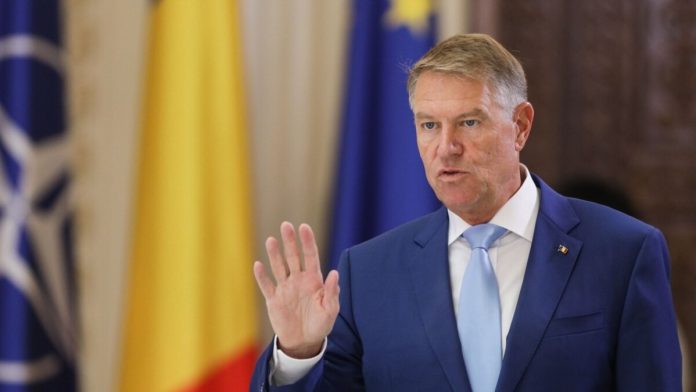Romania is a constant and far-reaching partner of Francophonie, including in its economic dimension, president Klaus Iohannis said on Wednesday within the Economic and Commercial Mission of Francophonie in Central and Eastern Europe.
The message was presented by the presidential advisor Sergiu Nistor.
„I welcome with satisfaction the decision of the International Organization of Francophonie to entrust Romania with the hosting of the Economic and Commercial Mission of Francophonie, an event to which I granted my High Patronage. (…) The official opening of the Economic and Commercial Mission of Francophonie in Central Europe and East in Bucharest naturally integrates into the actions that have consolidated, in the last 30 years, Romania’s status as a full member of the International Organization of Francophonie and which justifies our role as a beacon State of Francophonie for this region of Europe”, the head of state pointed out.
He emphasized that, according to the Economic Strategy for the Francophonie 2020-2025, economic cooperation and commercial exchanges „have the aim of generating the reduction of gaps, the building of a resilient, inclusive and innovative Francophonie, oriented towards enhancing the potential of young people and women”.
Iohannis stated that the mission from Bucharest, which has the High Patronage of the Presidency, certifies that „Romania is a constant and far-reaching partner of Francophonie, including in its economic dimension”.
The president pointed out that last year our country recorded „robust economic growth of 2.1%, a rate higher than the average of the European Union”.
„This performance is the reflection of a consistent investment advance, which ensures us a sustainable economic growth. The fact that we have, at the national level, specialized human resources, that we have access to European funds for development and we are committed to prioritizing sustainability and digitization constitute arguments that recommend Romania as a privileged destination for foreign investors and large companies, an important percentage of which is represented by our partners from French-speaking countries”, Klaus Iohannis pointed out.
The head of state said that our country’s accession to both Francophonie and the European Union „is proof of the fact that between the two organizations, including through Romania’s contribution, an ever better collaboration is developing, based on common interests and values”.
„Solidarity, the defense of democracy and the rule of law, tolerance, respect for human dignity, the education and training of young people in and through the experience of dialogue are fundamental premises for a peaceful and prosperous future”, emphasized Klaus Iohannis.
Moreover, he stated that, in the current context marked by the war in Ukraine and its negative economic and social effects, „Romania’s action within the Francophone movement aims at strengthening the cohesion of our organization and its internal resilience, as well as increasing our capacity for dialogue in in order to promote solutions for the overlapping crises of this period”.
„In this sense, Francophone economic cooperation can bring an important added value and I hope that Romania’s actions aimed at supporting Ukraine – observer member – and the Republic of Moldova – full member of Francophonie – represent a source of inspiration for how solidarity can be successfully opposes the aggression and violation of international law”, added the head of state.
Iohannis said the fact that a consolidation of bilateral relations with Africa remains a priority for Romania.
„We have a strategic document entitled Romania – Africa: Partnership for the future through peace, development and education, recently adopted, intended to raise the level of cooperation with the countries on this continent, and at the same time we provide consistent support through Development Assistance programs,” the president said.
Iohannis said that our country is interested in revitalizing economic collaboration with traditional partners from the Middle East and Southeast Asia.
AGERPRES




